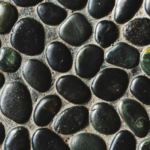1. Introduction
Clean Marble:-Marble adds elegance to any space, but its care requires attention to detail. Unlike other surfaces, marble is sensitive to acidic cleaners and harsh chemicals, which can cause dullness or damage. In this guide, you’ll find expert tips to keep your marble spotless and streak-free, ensuring it remains beautiful and well-protected for years to come.
2. Understanding Marble and Its Cleaning Needs

What You Should Know About Marble Surfaces
- Explain marble’s porous nature and why it’s sensitive to acidic cleaners.
Common Stains and Issues with Marble
- List common issues (water spots, etching, oil stains) and why regular care is essential.
3. Essential Supplies for Cleaning Marble

Choosing the Right Cleaning Products
- Outline what to look for in marble-safe cleaners and which ingredients to avoid.
Basic Tools You’ll Need for Marble Care
- Mention items like soft cloths, a pH-neutral cleaner, a microfiber mop, and any other essential tools.
4. Step-By-Step Guide to Clean Marble Surfaces

· Dusting and Prepping the Surface
- Tips on how to dust or sweep marble surfaces to remove loose debris.
· Using a Gentle Cleaner for Daily Maintenance
- Describe how to use a pH-neutral cleaner to maintain the shine without damaging the surface.
· Dealing with Tough Stains
- Explain how to spot-clean stains using mild solutions and avoid using abrasive materials.
· Rinsing and Drying Thoroughly
- Emphasize the importance of rinsing with clean water and drying with a soft cloth to prevent streaks.
5. Special Techniques for Removing Stubborn Stains & Clean Marble

How to Remove Water Spots and Hard Water Stains?
- Provide gentle methods, like using distilled water or a homemade poultice for mineral deposits.
Handling Oil-Based Stains on Marble
- Describe how to absorb oil stains with materials like cornstarch or baking soda.
How to Address Etching on Marble Surfaces?
- Suggest solutions, such as using a marble polish or professional help for deeper etches.
6. Tips for Long-Lasting Marble Shine

Sealing Marble for Added Protection
- Explain when and why to seal marble surfaces and how it can protect against stains.
Preventing Future Damage
- Include actionable tips like using coasters, cleaning spills immediately, and using mats in high-traffic areas.
7. Common Mistakes to Avoid When Cleaning Marble

Avoiding Harsh Chemicals and Abrasive Tools
- Explain why certain cleaners and tools can harm marble and what to use instead.
Why DIY Cleaning Products Might Not Be Safe for Marble
- Caution readers on DIY solutions that contain acids (like vinegar) and the potential risks involved.
8. Eco-Friendly Options for Clean Marble
How to Use Eco-Friendly Cleaners Safely on Marble
- Offer ideas on eco-friendly products and homemade solutions (such as mild dish soap and warm water) that are safe for marble and friendly to the environment.
9. DIY Marble Cleaning Solutions: Safe Recipes and Tips for Everyday Care

Creating Gentle, Effective Marble Cleaners at Home
- Provide step-by-step instructions for making marble-safe cleaning solutions with ingredients like mild dish soap, distilled water, and baking soda. Emphasize how to use these mixtures for regular care without risking surface damage.
10. When and Why to Hire Professional Marble Cleaners: A Guide to Clean Marble

Understanding When Professional Care Is Necessary
- Discuss scenarios where professional services are beneficial, such as removing deep stains, addressing heavy etching, and restoring shine. Provide tips on selecting a reputable marble care professional to ensure safe and effective results.
Conclusion
In conclusion, keeping marble surfaces spotless and streak-free is achievable with consistent care. Use pH-neutral cleaners, avoid acidic substances, and follow a regular maintenance routine to preserve the marble’s natural beauty. Simple habits like dusting and wiping spills immediately can prevent stains and scratches. Sealing marble every 6-12 months offers added protection, helping surfaces resist damage over time. Avoid harsh chemicals and abrasive tools, opting instead for marble-safe products. With these steps, you’ll enjoy long-lasting shine and elegance from your marble surfaces while protecting their unique characteristics for years to come.
FAQs About Clean Marble
Can I use vinegar or lemon juice to clean marble?
- No, acidic substances like vinegar or lemon juice can damage marble, causing dull spots and etching.
How often should I clean my marble surfaces?
- For daily maintenance, dust or wipe with a soft cloth. Deeper cleaning with a pH-neutral cleaner can be done weekly or as needed for high-use areas.
What is etching, and how can I prevent it?
- Etching is surface damage caused by acidic substances. Prevent it by avoiding acidic cleaners and cleaning up spills, especially from juice, coffee, or wine, immediately.
How do I remove scratches from marble?
- Light scratches can often be buffed out with a marble polishing powder or paste. For deeper scratches, consult a professional.
Is sealing marble necessary, and how often should I do it?
- Yes, sealing helps protect against stains and etching. Depending on the type of marble and usage, resealing once every 6-12 months is recommended.
Can I use dish soap to clean marble?
- Yes, a few drops of mild, pH-neutral dish soap mixed with water can be used for occasional cleaning but be sure to rinse well to avoid streaking.
What should I do if I spill something on marble?
- Blot the spill immediately with a soft cloth, and rinse with clean water. Avoid rubbing, as this may spread the stain or damage the surface.
How do I get rid of water spots on marble?
- Use a soft cloth dampened with distilled water and buff the area gently. If the spots are stubborn, a marble-safe cleaner may help.
Are there any cleaners specifically made for marble?
- Yes, there are pH-neutral cleaners designed for natural stone that are safe and effective for marble surfaces.
How can I keep my marble floors looking polished and shiny?
- Regularly sweep, clean with a pH-neutral cleaner, and dry thoroughly. Occasional buffing with a microfiber cloth will also help maintain shine.

